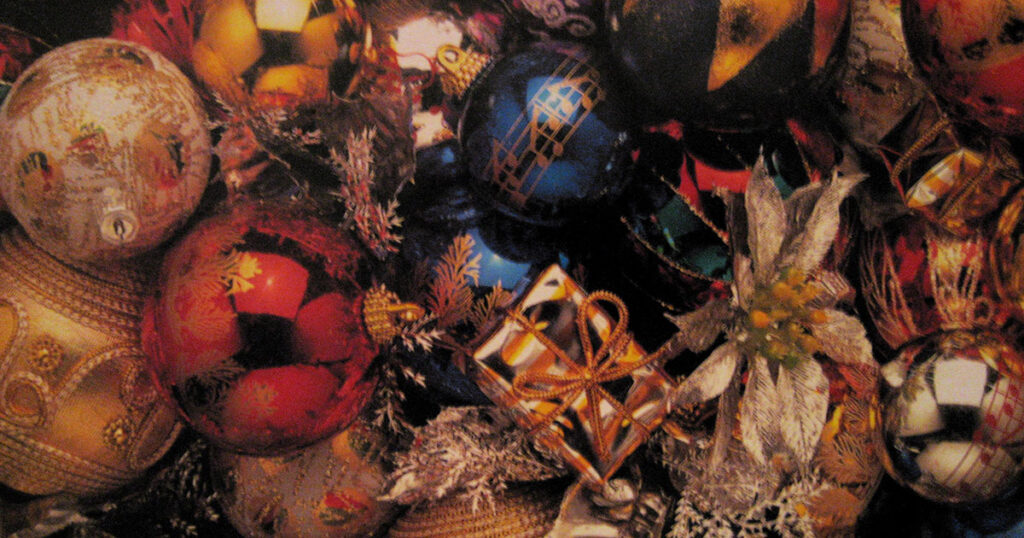
I typed in the address on my tablet and pulled up a map of the area surrounding the Albuquerque airport. Look, I said to my mother. Here’s the exit, here’s where we bear to the left, here’s where we turn onto University Boulevard, here’s the meeting place. My mother peered at the map. Yesssss, she said, sounding uncertain. I repeated myself: here’s the exit, the split in the road, the left turn. “Okay,” she said, and disappeared. About two minutes later, she had a paper map of Albuquerque spread out on the table, everything so small that I needed my reading glasses to make out the road names. “Oh yes!” she exclaimed, now on familiar territory. “Of course. I see. Perfect.”
Scrolling across a digital map on a screen is not a brand-new experience for my mother, but it is just unfamiliar enough that she cannot easily understand it. Yes, she says, when I point out one landmark or another, but the information does not coalesce into a vision of the city. In contrast, her handy, worn map of Albuquerque provided the signs that she could immediately translate into an image of where we were going. She beamed. Then she told how a friend of hers, when reading a piece of music, would be startled by any unfamiliar arrangement. Same piece of music, same notes, but slightly different presentation and she was on new ground, feeling uncertain, hesitant. If a line of notes appeared at the bottom of a page instead of the top where she was used to seeing it, she was thrown. The way a thing looks affects how we understand it.
Writers know this. Think of poets’ line breaks and how they affect meaning because of our tendency to emphasize the final word of a line. Think of the helter-skelter arrangement of words across the page with modern poets. Think of white spaces in a short story. Of long unbroken passages, not cut up into paragraphs. Think of reading a letter with indentations instead of only line breaks to signal paragraphs. Think of Barney Stinson on How I Met Your Mother, pausing for emphasis, the pause signaled with his admonition, “Wait for it,” before delivering the zinger. A zinger needs quiet to zing. Think of the last line of Alice Munro’s story “The Chaddeleys,” where one sentence is cut into many: “Life is. But a. Dream.”
But not only writers. And not only words. I learned in a New Yorker article on sound that since the 1990s, acousticians, when assessing a sound environment, have come to rely more on their ears than on the instruments they carry measuring frequencies and reverberation times. The new approach is called psychoacoustics and assumes the sound of a played piece is affected by the whole experience of listening—where you are, who you are with, what you have heard about the musicians. When a venue feels warm and inviting, the music will sound better.
Well, that makes sense. Could I enliven a dull classroom experience by speaking with an accent? Any mishmash to raise a smile would do. “Vat do you call ze CHIeld of yourrr aunt and ONKle?” “That’s weird! That’s not right,” my students would say in amazement. “Tell me what is right,” I could then challenge, and maybe my students would change not only ze back into the but pronounce cousin correctly, not cuZIN as they tend to. Maybe they would drop the ee in FREEend. The warmth of a chortle won’t last an hour, but it might a few minutes.
A writing teacher once advised us pupils to change our formatting in order to see our composition anew. Instead of one column, two. Instead of portrait view, landscape. Instead of Times font, Baskerville. A different look can make you see again what you had become habituated to, and not only with text. You no longer see the painting in the entry? Move it to the stairwell, and it will jump out at you. But beware, the empty entry will jump out too, perhaps gladly, relieved of a burden, but perhaps bereft and forlorn. Learn the possibilities through change. You don’t love your life? Change it.
Christmastime, once again, pushes a change on us. Smiles required, memories of past Christmases requisite, a tree put up and decorated, wreath on the door where last year it afforded comfort and this year you hope for the same. The carols, heard everywhere, the shopping to do deepening like drifting snow in the old days, titillating with the first flakes and then after days of it, becoming a real burden. Christmas Day, New Year’s to come, Reyes at the end, excited children becoming whining children, no one ever as happy as they’d hoped to be, then the tree packed up into its box, decorations put away, and back to sensible eating. With any luck, you find you life restored to the way it was and, content with it after all, you can continue as before.


